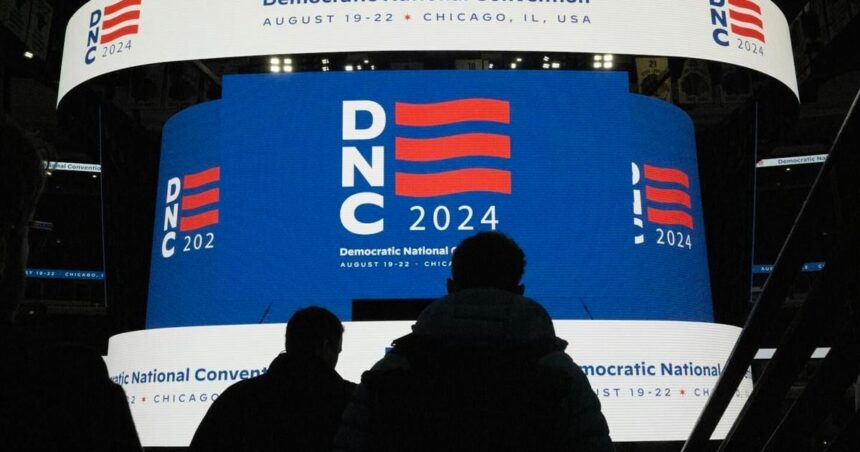Political conventions can be decisive in shaping national politics and campaigns, even if they don’t decide the nominees for president anymore.
Robert Shrum
Democratic presidential nominee Al Gore gained between 13 and 18 percentage points in the polls after his acceptance speech in 2000. By the Saturday after the speech, Gore, who had been behind by double digits, was suddenly in the lead. (And he only lost an incredibly close election because of a Supreme Court decision.)
Similarly, Republican President George W. Bush turned his September 2004 convention in New York City — not far from Ground Zero — into a vivid message: In the face of a terrorist threat, he was the safest choice to protect America.

Democrats may have just sounded the death knell for national political conventions.
Sometimes, big convention moments fizzle out. Republican nominee John McCain made a Hail Mary pass in 2008 by picking the little-known Sarah Palin as his running mate. She wowed the delegates and the country in her acceptance address, and McCain took the lead over Democrat Barack Obama in the polls. But Palin soon became a liability, fumbling basic questions in interviews and casting doubt on McCain’s judgment. McCain lost.
People are also reading…
Republican nominee Mitt Romney invited Hollywood actor Clint Eastwood to speak at his party’s 2012 convention. Eastwood castigated an empty chair, which represented President Obama. The awkward moment overshadowed Romney’s remarks that night.
Conventions can create an emerging star or recast the dimensions of a subsequent presidential race. It happened in 1956 when a senator from Massachusetts spoke three times to the Democratic conclave and almost won an open contest for the vice-presidential nomination. Had John F. Kennedy not lost at the end of the roll call, his Catholicism would have been blamed, in part, for the Democratic ticket’s landslide defeat. Instead, he became the leading Democrat for president in 1960, defeating Richard Nixon.
History repeated itself with Obama’s stunning keynote at the 2004 convention. He didn’t lead Hillary Clinton heading into the next presidential campaign, but he had emerged as her most likely rival and eventually won.
Even well-known leaders can be boosted by a convention in which they do not prevail. Ronald Reagan’s powerful remarks in 1976, unusually delivered at President Gerald Ford’s invitation after Ford’s acceptance speech, positioned Reagan as the front-runner for the 1980 nomination. Ted Kennedy’s ringing affirmation of Democratic values and the worth of his campaign after he was defeated by President Jimmy Carter in 1980 had the same effect among Democrats, though he declined to run again.
A national political convention also can signal or speed up major transformations in public policy or national life. Reagan, in 1980, put supply-side economics at the center of Republican orthodoxy, and it continues to enthrall the GOP today. Ted Kennedy’s successful insistence on a gay-rights plank in the 1980 Democratic platform was seen by many as reaching too far. But today, it has become the national consensus among Democrats and a majority of Americans.
Democratic nominee Walter Mondale’s choice of Geraldine Ferraro as his running mate in 1984 was another first. And by 2020, three women were running for president. One of them became vice president and soon may be elected to the highest office in the land.
Conventions are fundamentally about the message. This year, after the assassination attempt on former Republican President Donald Trump, a “kinder and gentler” Trump was supposed to premier at the GOP convention. Instead, he doubled down on the darkness of anger and grievance.
Now, Democratic nominee Kamala Harris and her running mate, Tim Walz, will seek to use their convention as a joyous defense of freedom and democracy, and a hopeful summons to a new future. In November, we will learn which message persuaded more Americans — and which convention mattered more.
Shrum is a political science professor and director of the Center for the Political Future and the Unruh Institute of Politics at the University of Southern California. He wrote this for InsideSources.com.





